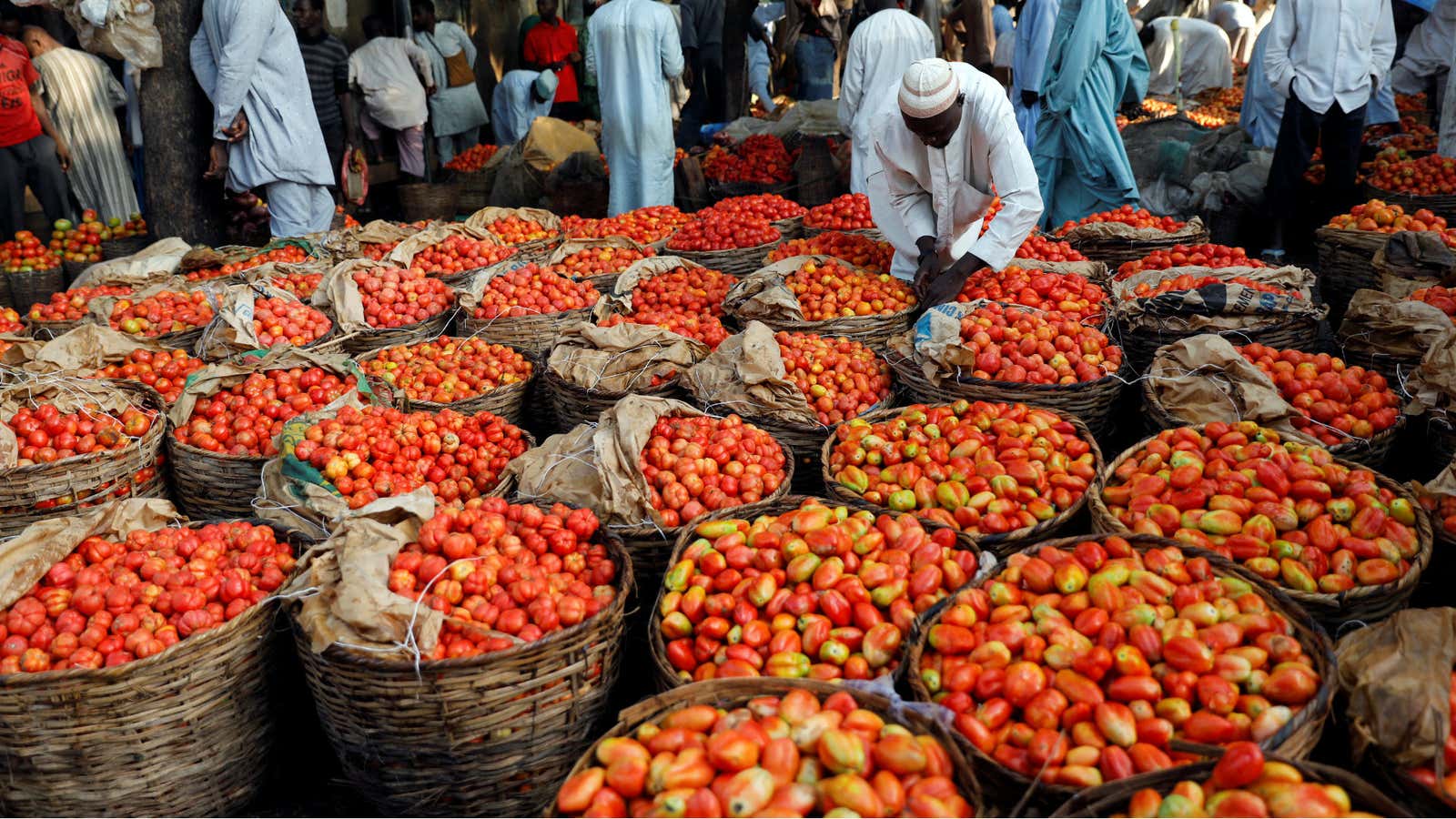There’s a top-line statistic on tomato farming in Nigeria which captures the state of the sector: around 45% of harvested tomatoes go to waste in Africa’s most populous country.
That reality is down to a mix of fundamental infrastructural gaps including inefficient cross-country transport systems and a lack of storage facilities which means local farmers can neither store the crops or distribute them at scale. As such, despite being Africa’s second largest producer, Nigeria still relies on importing around half of tomatoes consumed locally.
But Tomato Jos, a six-year agro-processing venture, is winning investor backing to fix that problem. The company has raised $4.2 million in a Series A round led by Goodwell Investments through Alitheia Capital, its West African partner, with participation from Acumen Capital Partners and VestedWorld.
Since its founding Tomato Jos, which operates in Kaduna, northern Nigeria, has partnered with smallholder farmers to improve agricultural yield and efficiency. Now buoyed by new funding, Tomato Jos plans to transition into processing and distribution of tomato products amid local demand-supply gaps.
The company’s plans include a processing plant with target capacity of 24 tons of tomato paste daily. Mira Metha, founder of Tomato Jos says the first five years of the company were focused on working with smallholder partners to improve production and put “a really solid foundation” for supply in place.
The importance of sustainable produce supply models is best captured by the struggles of Aliko Dangote, Africa’s richest man, whose tomato-paste factory had operations shuttered for over two years due to a price dispute with local farmers. Following a resolution of that dispute, the factory resumed operations last month with a processing target of 100 tons daily.
Sign up to the Quartz Africa Weekly Brief here for news and analysis on African business, tech and innovation in your inbox
